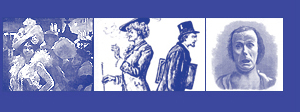Unconscious - The Empirical Unconscious: Nerves, Memory and Automatism
Author: William Benjamin Carpenter
Title: Principles of Mental Physiology (1874)
Keywords:
Introduction
These extracts from Carpenter’s Principles of Mental Physiology (1874) are taken from Jenny Bourne Taylor and Sally Shuttleworth, ed, Embodied Selves: An Anthology of Psychological Texts 1830-1890 (Oxford University Press: 1998). The first extract shows Carpenter trying to combine descriptions of the mind as both acting spontaneously and automatically, and controlled by the conscious exercise of will. The problem is one of integrating an emerging scientific sense of thoughts and feelings as, in some ways, self-functioning, arising out of the action of the brain and nerves, with more traditional moral notions of self-determination: “It is, in fact, in virtue of the Will, that we are not mere thinking Automata, mere puppets to be pulled by suggesting-strings…”. The second extract further examines the borderline between conscious and unconscious thinking (or cerebration) and the nature of reflex actions in the brain.
Please select below to view scanned pages from 'The power of the will over mental action':
Back to Unconscious documents | Introduction | 1 | 2 | 3 | 4 |

